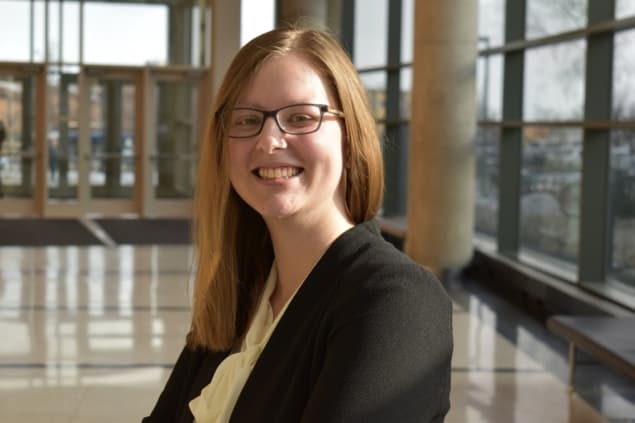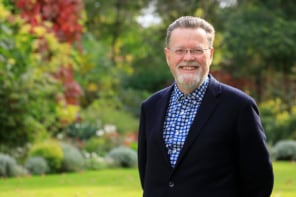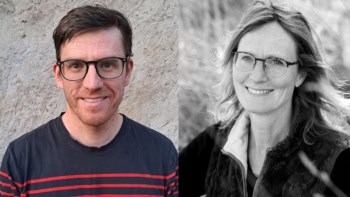Catherine Steffel is a PhD student in medical physics at the University of Wisconsin-Madison, USA.
This post is part of a series on how the COVID-19 pandemic is affecting the personal and professional lives of physicists around the world. If you’d like to share your own perspective, please contact us at pwld@ioppublishing.org.

I’m writing this on my typewriter. She’s a trusty Corona Standard that has seen everything from the Great Depression to the rise of the Internet. And I’m writing on her today (20 March) because my screen time is through the roof.
I’m one week into an isolation of indeterminate length to limit the spread of the novel coronavirus and its resultant disease, COVID-19, and it’s been hard for me to ignore the incessant barrage of media updates.
This time last week, I was loading books from work into my car. I had a feeling that I wouldn’t be returning to my cubicle anytime soon.
Two days later, in part a response to Wisconsin Governor Tony Evers’ declaration of a public health emergency, University of Wisconsin-Madison chancellor Rebecca Blank announced that university employees should work from home, when possible. Two days after that, Blank said that in-person classes, which had originally been cancelled through 10 April, would remain online through semester’s end.
In the days that followed, cancellations and closures piled up. University buildings closed to all but essential personnel, and research activities involving human participants were suspended until further notice. Life as I knew it had ground to a halt.
Like many PhD students, I am now reflecting on my priorities and research project. To be honest, I hadn’t truly felt connected to my project – developing quantitative ultrasound imaging parameters for stroke risk assessment – until a few months ago, when I returned to Madison from an internship and received my committee’s OK to defend in fall. With that “OK”, I felt a renewed determination to finish my project, complete the degree.
Earlier today, I realized I can’t start my final aim until the university reopens…Does it really matter?
My advisers say that the university closure is temporary, that it won’t last more than two months, that my degree is not on hold. I disagree…Does that matter?
I’m more fortunate than many graduate students. I have a reliable Internet connection, computer workstation and an office space at home, and I have enough food and supplies to last a while. I have a car. I don’t have to prelim or defend virtually.
But I’m also concerned: for my friends and family, friends’ families, colleagues and their families, myself. We’re spread out across the globe, some still trying to make it home. Some of us are considered essential and are working throughout this pandemic in hospitals and clinics, bakeries and law offices.

Physics in the pandemic: ‘The quarantine is taken very seriously’
I’m tired. I’m frustrated at those who do not heed requests to stay home. I’m angry at those who hoard supplies and spread misinformation. I’m disappointed and grieving for events and conferences that were cancelled. I wonder what will happen if people, desperate for necessities and actionable change, start looting.
Needless to say, finding a routine hasn’t been in the cards. Not this week, at least. In spite of external pressures to continue working, I’m treating myself gently and encouraging my friends and colleagues who can afford to, to do the same. Work will always be there.
For now, I read, cook, watch my neighbours’ dogs play outside, and chat and vent frustrations with friends. For now, it’s finally the weekend, although it doesn’t feel like it. For now, I’m going to watch Avenue 5 on HBO. Space cruise escapism, anyone?



